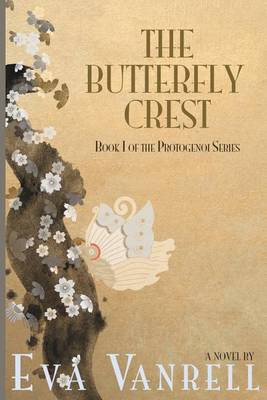Reviewed by sa090 on
───────────────────
I was really looking forward to this one given the Japanese mythological angle to it and my interest in mythology in general. However, I believe that I got that in a way I didn’t really expect. Eva Vanrell does an amazing job of describing the mythology and setting, while making sure that you understand everything as you are reading along, she’s not going to keep you guessing as to what this certain word means and the like. It’s even better yet when the mythology in question here spreads to include other cultures like Greek and Celtic, with the promise or rather the opportunity of so many more inductions. Personally I know enough of Greek mythology, Japanese mythology and the Japanese language in general to be able follow it without any needed extra information; but I definitely appreciated the extra information I got on the Celtic side of things.
That being said, there is a time when too much describing can actually be a con more so than a pro and unfortunately Eva Vanrell went way beyond that in the book. She paints the setting of the book in a way that makes sure you won’t ever need to take a step back to fill in some of the unnecessary gaps yourself, but after a while, it gets really tedious to see that just like the beginning of the book, this trend of over describing every single thing will continue till the very very end. Personally, I have a huge issue whenever an author will stick to telling me about things in what is seemingly an endless monologue (regardless if the point of views are third or first person) and to me, her approach, while it works in the beginning of the book, becomes a bit tedious in the middle of it and somewhat of a hassle in the final part of it.
The usage of some Japanese phrases and words were handled adequately, she has the characters say the phrase in Romaji (which is the way of writing Japanese words in English letters, like Ohayo or Konichiwa) before going further to explain it. I have a huge issue when authors don’t add a glossary to some of the foreign words used in their books since to me, English in itself was the foreign language taught in school, like I did with the Spanish words in Mary Weber’s latest duology. Eva Vanrell steps away from that since even when writing the romaji AND adding a glossary for those words, she will literally translate what was being said in English after the Japanese phrase to make it easier for others. Although, I do think it might need a revision in one instance tbh which I will mention in the comments below.
The characters in this case were filled with mythological and folklore beings which made me a little too giddy when I saw mentions of beings I didn’t expect to see, but easily recognized. However, the book obviously will give more of a focus to Elena and one more individual. Elena for 80% of the book was the definition of a damsel in distress, she would be taken from one spot to the other knowing very basic things about the situation while her “protector” would be painted to look like they had the right thought process to keep the information limited and Elena’s reaction to them is expected. When in reality, none of what happened between the two of them actually makes sense because of the nature of said protector.
That’s not the end of it either, despite the fact that we’re dealing with very powerful and very divine beings, some of them were acting a little too childish for my taste and more importantly given the profession some of them had, I’ll expect “calm and collected” to be the state of which they function, but both “Akai” and “Snowflake” were soooooooooo hotheaded that they were exhausting to read about. “Snowflake” in particular given the Nightingale syndrome-ish approach this cringeworthy romance developed in.
I left the plot till the end because that is the importance that was given to the plot in this book, the first half had us discovering where Elena got into all of this, but that’s about where the main plot line ended for me. The rest of the book had Elena completing a task that doesn’t really have anything to do with the biggest mission in this prophecy, kind of like a sub-mission you sometimes have to do in games to acquire special things that will be helpful from here onwards to complete the main mission, BUT they’re not mandatory. Seeing that the book was the first in a series, I could easily see that it wouldn’t wrap up the story in one book, but I expected a much much much bigger goal to be completed to justify the huge trip we had to take for the sub-mission. And honestly, I don’t think I got that.
If I’m talking about a pseudo guide for a place, then this book might be one given the plethora of descriptions about every new location visited. However, as a story it’s way too long of a prologue for my taste and doesn’t really need all of the 500+ pages it took to tell it... if I take away the very excessive descriptions I think I’ll end up with 250 pages maximum for this one. That being said, and especially because it’s taking way too long to write the second book, I most likely will pick up the sequel at some point in my life since I’m interested to see the mythological aspects she might bring into this and how Elena will fit in now, but as of now, I’m letdown with the content of the story despite my praises of her other areas.
Final rating: a very weak 2.5
Reading updates
- Started reading
- 28 May, 2018: Finished reading
- 28 May, 2018: Reviewed
